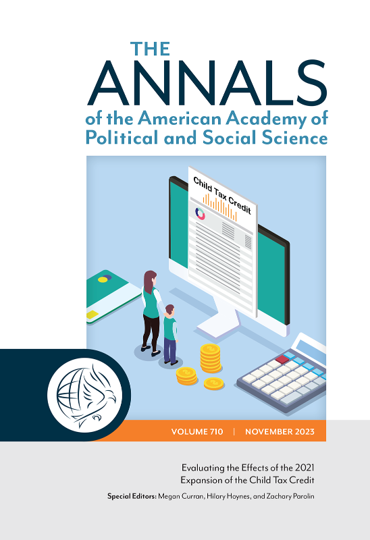The American Rescue Plan Act of 2021 temporarily transformed the Child Tax Credit (CTC) into a more generous cash benefit that was more frequently distributed to families with children in the U.S. From July to December 2021, the families of more than 90 percent of U.S. children received monthly cash payments of up to $250 per child (or $300 per young child under six); and at tax time in 2022, families received lump-sum tax refunds of up to $1,500 per child (or $1,800 per young child). Many of these families had not previously had access to the full credit because their incomes were too low. Evidence has linked this policy change, which created a near-universal cash benefit for children regardless of parents’ employment status or income, to the historic low child poverty recorded in 2021. Despite this, the temporary expansion was not made permanent, and the CTC returned to its pre-expansion structure in 2022.
This volume details the 2021 CTC expansion and its effects on a range of social, economic, and health outcomes. As Congress considers reimplementing some version of this policy in the future, this collection of articles seeks to critically analyze the advantages and disadvantages of the 2021 policy and, consequently, suggest improvements for a potentially permanent CTC expansion.

